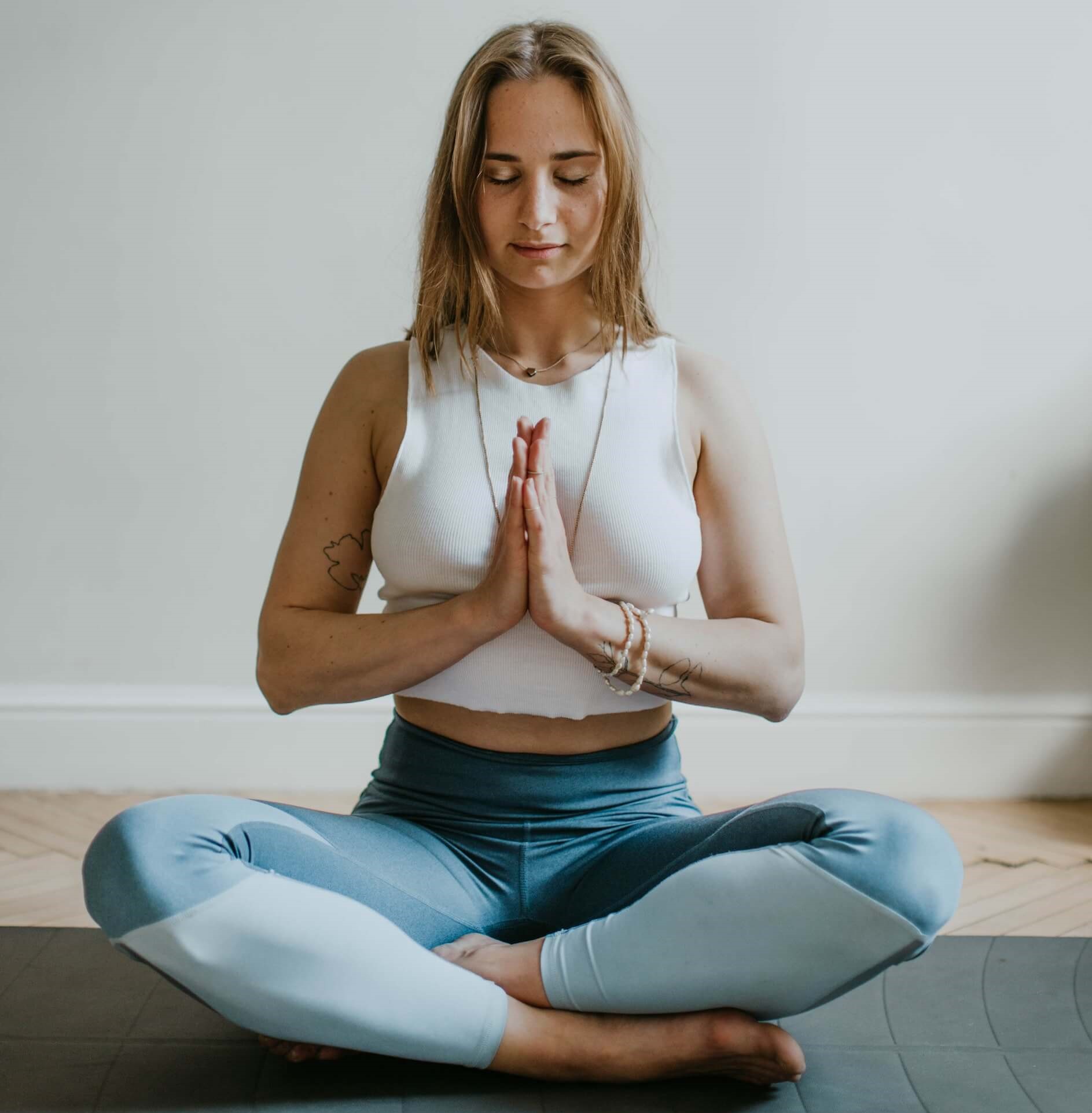Advertisement


Do you often feel overwhelmed by the demands of daily life? Are you experiencing stress and anxiety that interfere with your ability to relax and enjoy your free time? If so, you’re not alone. Many people struggle with the negative effects of stress and anxiety, but there are natural remedies that can help you manage these feelings and find a sense of calm.
Here are five natural remedies for stress and anxiety that you can try today:
First, deep breathing exercises can help you restore normal breathing patterns and reduce anxiety. By taking slow, even, deep breaths, you can calm your mind and body and feel more relaxed. Second, meditation is a powerful tool for managing stress and anxiety. There are many different meditation styles to choose from, including mindfulness and meditation during yoga. Third, aromatherapy can be a great way to promote relaxation and reduce stress. Essential oils like lavender, chamomile, and ylang-ylang can be used in a diffuser or added to a warm bath to help you unwind.
When it comes to reducing stress and anxiety, incorporating lifestyle changes is a great place to start. Making small changes to your daily routine can have a big impact on your overall well-being. Here are a few lifestyle changes to consider:
Regular exercise is a great way to reduce stress and anxiety. Exercise releases endorphins, which are natural chemicals that help you feel good and reduce feelings of stress and anxiety. Aim to get at least 30 minutes of exercise each day, whether it’s a brisk walk, yoga, or weightlifting. Find an activity that you enjoy and make it a part of your daily routine.
In addition to reducing stress and anxiety, exercise can also improve your sleep quality, boost your mood, and increase your energy levels.
Getting enough sleep is essential for managing stress and anxiety. Aim to get 7-8 hours of sleep each night. Establish a regular sleep routine by going to bed and waking up at the same time each day. Avoid caffeine, alcohol, and electronic devices before bed, as they can interfere with your sleep quality.
If you have trouble falling asleep, try relaxation techniques such as deep breathing or meditation. Creating a relaxing sleep environment, such as keeping your bedroom cool and dark, can also help improve your sleep quality.
Eating a healthy, balanced diet can help reduce stress and anxiety. Aim to eat a variety of fruits and vegetables, whole grains, lean proteins, and healthy fats. Avoid processed and sugary foods, which can negatively impact your mood and energy levels.
In addition to eating a healthy diet, staying hydrated is also important for reducing stress and anxiety. Aim to drink at least 8 glasses of water each day.
When it comes to managing stress and anxiety, mind-body techniques can be very effective. These techniques involve using your thoughts, breath, and body to help reduce stress and promote relaxation. Here are three popular mind-body techniques:
Meditation is a technique that involves focusing your attention on a particular object, thought, or activity to train your mind to be more present and calm. This can help to reduce stress, anxiety, and depression. Research has shown that regular meditation can also improve sleep quality, reduce blood pressure, and boost the immune system.
To get started with meditation, find a quiet and comfortable place to sit or lie down. Close your eyes and focus on your breath. You can count your breaths, repeat a mantra, or simply observe your breath as it flows in and out of your body. When your mind starts to wander, gently bring your attention back to your breath. Start with just a few minutes of meditation each day and gradually increase the time as you become more comfortable with the practice.
Yoga is a mind-body practice that combines physical postures, breath control, and meditation to promote relaxation and reduce stress. Regular yoga practice has been shown to improve flexibility, strength, and balance, as well as reduce anxiety, depression, and chronic pain.
There are many different styles of yoga, so it’s important to find one that works for you. Look for a beginner’s class or a gentle yoga class if you’re new to the practice. You can also try online yoga videos or apps if you prefer to practice at home. Remember to listen to your body and modify the poses as needed to avoid injury.
Tai Chi is a gentle form of martial arts that involves slow, flowing movements and deep breathing. It has been shown to reduce stress, anxiety, and depression, as well as improve balance, flexibility, and cardiovascular health.
To practice Tai Chi, find a quiet and comfortable place to stand with your feet shoulder-width apart. Begin by taking a few deep breaths and relaxing your body. Then, slowly and mindfully move through a series of Tai Chi movements, focusing on your breath and the sensations in your body. You can find Tai Chi classes at many community centers, gyms, and martial arts studios.
If you are looking for a natural way to reduce stress and anxiety, herbs may be a good option for you. Here are three popular herbs that have been shown to have calming effects:
Chamomile is a popular herb that is often used to make tea. It has been shown to have a calming effect on the body and may help reduce anxiety and stress. Chamomile contains compounds that bind to receptors in the brain that help promote relaxation.
You can drink chamomile tea before bed to help you sleep or throughout the day to help you relax. Chamomile is also available in supplement form, but be sure to talk to your healthcare provider before taking any new supplements.
Lavender is another herb that is often used for its calming properties. It has a pleasant scent that can help reduce stress and anxiety. Lavender has been shown to have a mild sedative effect, which can help you relax and fall asleep.
You can use lavender essential oil in a diffuser or add a few drops to your bath to help you relax. You can also drink lavender tea or take lavender supplements, but be sure to talk to your healthcare provider first.
Passionflower is a herb that has been used for centuries to treat anxiety and insomnia. It contains compounds that help promote relaxation and reduce anxiety. Passionflower has been shown to have a mild sedative effect, which can help you relax and fall asleep.
You can drink passionflower tea before bed to help you sleep or throughout the day to help you relax. Passionflower is also available in supplement form, but be sure to talk to your healthcare provider before taking any new supplements.
If you’re looking for a natural way to reduce stress and anxiety, aromatherapy may be a good option for you. Aromatherapy is the use of essential oils to promote physical and psychological well-being. Here are some essential oils that you can try:
Lavender essential oil is one of the most popular oils used in aromatherapy. It has a sweet floral scent that is known to promote relaxation and reduce anxiety. A study published in the Journal of Alternative and Complementary Medicine found that inhaling lavender essential oil for 15 minutes significantly reduced anxiety levels in participants.
You can use lavender essential oil in many ways. Try adding a few drops to your bathwater or diffusing it in your bedroom before bedtime.
Bergamot essential oil has a citrusy scent that is known to have a calming effect on the mind and body. A study published in the Journal of Phytotherapy Research found that inhaling bergamot essential oil for 15 minutes reduced the levels of the stress hormone cortisol in participants.
You can use bergamot essential oil in a diffuser or add a few drops to a carrier oil and use it for massage.
Rose essential oil has a sweet floral scent that is known to promote relaxation and reduce stress. A study published in the Journal of Natural Medicines found that inhaling rose essential oil for five minutes reduced the levels of the stress hormone cortisol in participants.
You can use rose essential oil in a diffuser or add a few drops to your bathwater.
Acupuncture is an alternative treatment that can be traced back to ancient Chinese medical practices. It involves inserting fine, sterile needles into specific points on the body to stimulate energy flow and promote healing. While acupuncture is not a cure for stress and anxiety, it can help alleviate symptoms and promote relaxation.
According to Medical News Today, electroacupuncture can be particularly effective for anxiety. During electroacupuncture, acupuncturists use needles that are connected to a device that sends electric pulses into the body. This can help regulate sleep and improve mood in people with insomnia.
One study from 2015 found that acupuncture improved symptoms in people with anxiety that didn’t respond to other treatments, including psychotherapy and medication. However, more research is needed to fully understand the effects of acupuncture on anxiety.
If you’re interested in trying acupuncture, it’s important to find a licensed and experienced acupuncturist. They can work with you to develop a treatment plan that’s tailored to your specific needs and symptoms. Acupuncture is generally considered safe, but it’s important to discuss any concerns with your healthcare provider before starting treatment.
Advertisement

Advertisement

-Advertisement-